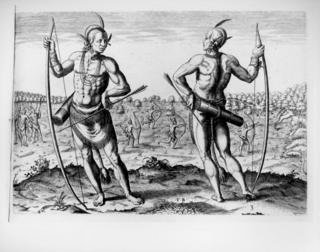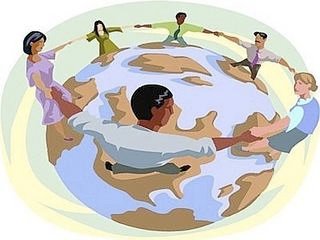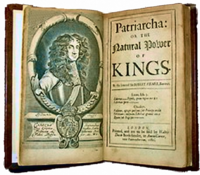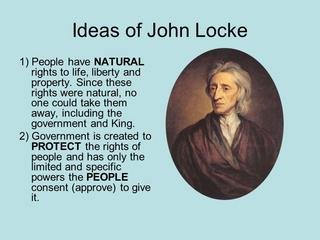SOCIETY: A CURSE OR A BLESSING?

The history of all hitherto existing society is the history of class struggles. Freeman and slave, patrician and plebeian, lord and serf, guild-master and journeyman, in a word, oppressor and oppressed, stood in constant opposition to one another, carried on an uninterrupted, now hidden, now open fight, a fight that each time ended, either in a revolutionary reconstitution of society at large, or in the common ruin of the contending classes. Karl Marx
Society is an institution that permits the co-existence of man, animals and every living and non-living things. Society has been a determinant factor that ensure continuous existence of man. It could be argued that without an organized society, man could not have lived this far.
My position above could be questioned has man have in many occasions tried to live outside an organized society. But the question is, how far did they go? Can someone truly lives his life outside an organized society and survive? This and many other questions could be raised to see whether it is possible for man to live in a space different from an organized society.
It should not be forgotten easily that there were historical facts about the struggle of man to man in order to maintain superiority. The organized society did not come into existence by chance. Man have always waged war against one another to claim properties as echoed above in the words of Karl Marx.
To explain this more, i shall be looking at the works of scholars like Thomas Hobbes, Jean Jacque Rousseau, Sir Robert Filmer, John Locke and Aristotle.

Thomas Hobbes - Leviathan
Thomas Hobbes, a socio-political philosopher theorized on how society was formed. Hobbes, in his work, Leviathan where he discussed the theory of state of nature, explains the selfishness of man to have everything to himself. Hobbes painted a situation where man lived in fear. In the state of nature, man was always an object of attack.
The state of nature has no government, no civilization, no laws, and no common power to restrain human nature. The state of nature is a "war of all against all," in which human beings constantly seek to destroy each other in an incessant pursuit for power. Life in the state of nature is "nasty, brutish and short."

Man in such society lives in fear. In order to escape such life of war, man enters into a contract called "social contract,". This contract was about giving up certain natural rights and transferring them to someone else, on the condition that everyone else involved in making the contract also simultaneously gives up their rights. People agreeing to the contract retain only those rights over others that they are content for everyone else to retain over them. Source
To make sure that the contract was obeyed and man's life and property were protected, they gave the power to a 'body' called Leviathan. The power of the Leviathan protects them from the abuses of one another. The Leviathan makes laws that ensure protection of lives and property in the society.
The above was Thomas Hobbes account of how civil society was formed.

Rousseau - General Will
Jean Jacque Rousseau is known for his dictum: Man is born free but everywhere he is in chains. Rousseau finds the idea that human freedom was concentrated in the hand of one person in the name of sovereign absurd. He questioned the rationale behind the idea to enslave man by being controlled by a sovereign power.

He also believes in a state of nature but it was a more organized state rather than one defined by brute. Rousseau believes that the need to protect human life and property was the reason man entered social contract. But human freedom was not concentrated in the hand of any single person, rather, the right is still with human under the umbrella of the 'general will'. The 'general will' is the will of the people. The laws of the society is made by the people.
Sir Robert Filmer - Patriarchal

Sir Robert Filmer theory is known as "patriarchal", which means based on the rule (arche = rule) of the father (pater = father). Filmer, based his analysis on the Bible which in those days was the main history book available to people.
History was one point where the "scientific" element came into Filmer's argument. He argued that there was no historic evidence that a state of nature had ever existed. The state of nature theorists (Thomas Hobbes, Jean Jacque Rousseau) built their arguments on an historic fantasy. Filmer argued that it was more true to nature to consider authority as just given to us. We are born into families which have a hierarchical structure and our relation to the state is similar. Just as it is inconceivable that a child should choose its father, so there is no historic evidence that any people originally chose their rulers. Source
John Locke - Property

John Locke, in his second treatise, focused on the absolute powers given to a king with the reference to Adam. This was actually articulated by Sir Robert Filmer. The center reason for which organized society was formed according to Locke was to protect 'property'.
Contrary to Hobbes' state of nature where life was short, nasty and brutish, Locke believes that natural laws ensured that every man was protected. Locke explains the state of nature as a state of equality in which no one has power over another, and all are free to do as they please. He notes, however, that this liberty does not equal license to abuse others, and that natural law exists even in the state of nature. Each individual in the state of nature has the power to execute natural laws, which are universal. Locke argues that natural law lies in the fact that even when a person is reasonably under the power of a foreign king, if a person commits a crime in a foreign country they can still be punished. Locke states that natural law simply demands that punishment fit the crime - a person in the state of nature can redress any crime to discourage the offender from repeating it. Source
The right to possess things or lay claim to things based on the fact that we saw it first created problem of insecurity and this led people to form a commonwealth (state). So man entered into a social contract to protect his property. Locke believes that power should be decentralized. Both ruler and citizens have rights in the society. Locke's is dubbed the founder of democracy.
Aristotle - Social Animal

According to Aristotle, man is a social animal and is different from the other animals because of his civilized nature or nature of going from good to better and from better to the best. Human progress and cultured status is impossible without interrelations. So, man prefers to live with the others to get various basic needs that cannot be achieved lonely. To get the very basic needs, man and women, roaster and slaves came together and as a. result, the first institution of human civilization, family, was formed. When families increased, they made villages and tribes to solve some greater needs. Due to some other greater problems and needs, the tribes and villages united in a single and greater institution, the state. Source
He maintains that man as a civilized individual cannot survive without state and if he claims, then it means from human beings, he is nation-less, lawless, and homeless. He is either above or below man.
For him, family is the starting point of human civilization and state is the last step Progress from family to state is evolutionary and natural. It is needed for human progress and development. State is not an imposed institution. He stated clearly that an individual out of the state has no status. So individuals and state in their compositions are similar.
No man, according to him can live in isolation. To be a man is a to be social being. A being that lives in the society. No man is self-sufficient. We need fellow man and organized institution to survive.
Aristotle believes in balanced collectivism and frowns at absolute state powers (As we have it in the Leviathan) and gives certain rights to its citizens.
Aristotle claims that the major aims of a society are the economic development, protection of rights and
liberties, formation of government and civil service structure to enable its citizens to use their capabilities for collective happy life.
From all the beautiful theoretical works above, it is safe to say our present organized society did not come into existence by chance. History made us know that there has always been the issue of class struggle. Egoism and selfish interest have played their parts in the history of man.
In the present day society, we can agree with Filmer that we are born into family. But to say the idea of family has been in existence before an organized society is to deny history itself. But I wont blame Filmer much because he theorized on the text available to him then which is the Bible.
It has also been argued that the state of nature portrayed by the scholars i cited above is pseudo. For them, it is an utopia. An utopia state or society is one that exist only in the imaginary world.
While i would not like to dispute their claims totally, i think they have good points regarding how things were before we have this present organized society. The fact that war was the order of the day then and people were constantly waging wars over one another just to maintain superiority is enough. People, then, were war-ready. They can go to any length just to acquire other people's wealth and enslave the whole people.
An organized society for me is a blessing because it stops whole lot of human inclinations which would have been detrimental to the peaceful co-existence of man with man. A lawful society, you will agree with me is more plausible and easy to live compared to a lawless owe.
I cannot imagine a society without peace. How can we engage in our daily activities and even conceptualize a brighter future had there not been an organized society ruled by reason and certain laws?
It can be argued that some of the things painted in the state of nature are still happening in the present day society. But would you have wished we return to the state of nature? Would you have thought a society where you live in constant fear is preferable to one guided by rule of law?
Ponder on it and drop your comment below. Constructive criticisms are welcomed.
I am your brother @smyle the philosopher. Thanks for reading this new piece!
Upvote and Resteem!
The big smyle. Always making my day. Though i don't know what to say about the society anymore. IT's kind of confusing right now.
Thanks boss! Yes it is confusing but we are happy we are still living in an organized society!
I won't dispute that but we still need to get things in place. You know i can't abscond my mother's land.
Great long post! History fascinates me its partly whats wrong with society now a days. People dont appreciate the past, or look for inspiration from the past to do better in the future.
I for one thing society now is crap. Quite honestly if I could exit society and be fine on my own I would be all for it. So much anger, hate, and greed now its saddening.
Upvoted and resteemed for the good post!!!
Wow! Thanks. But you may not be able to exit society for the same reason Aristotle pointed out. It would be hard to survive outside society since we are social being and we need to interact.
Thanks for the upvote and resteem.
Your welcome! :)
Long read but worth it... Nice post boss.
Thanks. I just wanted people to understand that civil society did not come into existence by chance.
Great work @smyle. I am really enjoying your work
Thanks boss! 🙌
once again one masterpiece of @smyle.. I love how deep you go into your blogs, and like this one. Do you read stuff before writing about it btw? Or is it an idea and then start do do some research on it? Because you are one hell of writer bro! respect!
Thanks brother! Things i write on are mostly what i learnt in the university. I do some research too to make it interesting for readers.
You are doing just too good...... You are my Man Crush
Nice article brotherly
Thanks!
The Philosopher, thanks for a good post as usual.
Thanks for reading it.
Well done @smyle...... I really enjoyed what i read
Thanks boss! I really appreciate your support!
You've got a new fan!
Keep sharing such content.
This is exactly what I needed.
This is so good.. You will do well as special adviser to any political office or in law firm
lols! Thanks
Very nice article. What are your thoughts on the current structure of society, as it exists today? Do you have any thoughts on how society could be structured differently?
Thanks for your comment. In the present day society, we have different political practices. While the most acceptable system is democracy, there are still some problems with it.
I believe in a decentralized government and a political system where at least 95% of the adults compulsorily participate in elections to ensure the candidage wins, the 'maximum number of voters' truly counts contrary to the pseudo numbers we have in present day democratic settings where 60 voted, 10 are null, the remaining 50 are shared among different parties and in the end, the winner has 24 votes (How is that majority?).
Thanks.